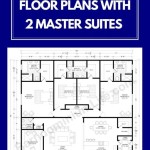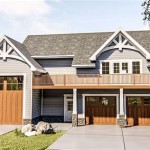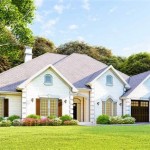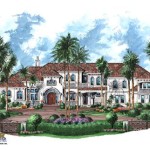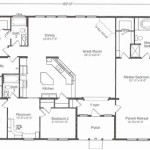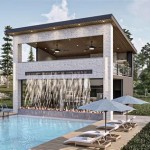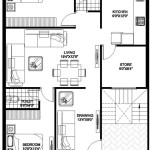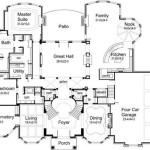Multi-Generational Home Floor Plans
Multi-generational homes are designed to accommodate the needs of multiple generations of a family living under one roof. They offer a unique opportunity for families to stay connected while maintaining their own space and independence. When designing a multi-generational home, it is important to consider the needs of all family members, from young children to aging parents.
There are many different types of multi-generational home floor plans available. Some common options include:
- Main floor master suites: This option is ideal for families with elderly parents who may need assistance with daily activities.
- In-law suites: These suites are typically located on the first floor and include a bedroom, bathroom, and living area. They provide a private space for elderly parents or adult children who need some independence.
- Basement apartments: Basement apartments are another option for providing separate living quarters for family members. They can be designed to include a bedroom, bathroom, kitchen, and living area.
- Accessory dwelling units (ADUs): ADUs are small, independent units that can be built on the same property as the main house. They are often used to provide housing for elderly parents or adult children.
When choosing a multi-generational home floor plan, it is important to consider the following factors:
- The needs of the family members: The floor plan should be designed to meet the specific needs of the family members who will be living in the home.
- The size of the property: The size of the property will determine the size and scope of the multi-generational home that can be built.
- The budget: The cost of building a multi-generational home can vary depending on the size, complexity, and location of the home.
Multi-generational homes can be a great way for families to stay connected while maintaining their own space and independence. By carefully considering the needs of all family members, it is possible to design a multi-generational home that meets everyone's needs.
Here are some additional tips for designing a multi-generational home:
- Create separate living spaces for each generation. This will give everyone their own space to relax and entertain guests.
- Include common areas where the family can gather. This could include a family room, kitchen, or dining room.
- Make sure the home is accessible for all family members. This means including features such as wide doorways, ramps, and grab bars.
- Consider the future needs of the family. As family members age, they may need more assistance with daily activities. It is important to design a home that can accommodate these needs in the future.
With careful planning, a multi-generational home can be a great way to create a comfortable and welcoming home for all family members.

Fun Functional Multigenerational House Plans Houseplans Blog Com

How To Build The Perfect Multi Generational Home Plans Included Oberer Homes

Multi Generational Homes Finding A Home For The Whole Family

Fun Functional Multigenerational House Plans Houseplans Blog Com

Multigenerational Floor Plans Are Perfect For Extended Households

Multi Gen Homes D R Horton

Best Multigenerational Homes Four Generations One Roof House Plans New Barndominium Floor

What Is A Multigenerational Home K Hovnanian Homes

Multigenerational Living Is It Right For You Wisdom Homes

Multigenerational Home Design Is It Right For You

